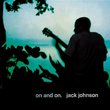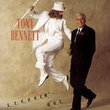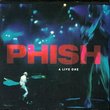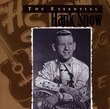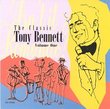| All Artists: Jimmy Reed Title: Blues Masters: Very Best of Jimmy Reed Members Wishing: 5 Total Copies: 0 Label: Rhino / Wea Original Release Date: 3/14/2000 Release Date: 3/14/2000 Genres: Blues, Pop, R&B Styles: Chicago Blues, Electric Blues, Harmonica Blues Number of Discs: 1 SwapaCD Credits: 1 UPC: 081227980221 |
Search - Jimmy Reed :: Blues Masters: Very Best of Jimmy Reed
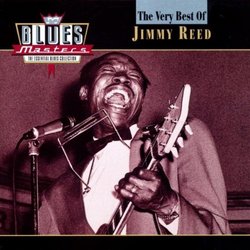 | Jimmy Reed Blues Masters: Very Best of Jimmy Reed Genres: Blues, Pop, R&B
With his meteoric run of hits from early 1955 through late 1961, Chicago's Jimmy Reed reigned as the most popular bluesman of his day, rivaled only by fellow Mississippi transplant B.B. King. By the mid-'60s Reed was playi... more » |
Larger Image |
CD DetailsSynopsis
Amazon.com With his meteoric run of hits from early 1955 through late 1961, Chicago's Jimmy Reed reigned as the most popular bluesman of his day, rivaled only by fellow Mississippi transplant B.B. King. By the mid-'60s Reed was playing New York's Carnegie Hall and the Apollo Theater and touring England as a star. Reed's sweet, Delta-inflected singing complemented the cool, walking bass shuffles of his cleverly crafted songs, the finest of which are to be found in this tasteful contribution to Rhino's Blues Masters series. Included here are chart toppers like "You Don't Have to Go," "Ain't That Lovin' You, Baby," "Baby, What You Want Me to Do," "Big Boss Man," and "Bright Lights, Big City," all durable standards that influenced a generation of rockers from Bob Dylan to the Rolling Stones to Jimi Hendrix and earned Reed his proper place in the Rock and Roll Hall of Fame. --Alan Greenberg Similarly Requested CDs
|
CD ReviewsJimmy Reed's Prime Tracks From the Vee-Jay Vaults Steve Vrana | Aurora, NE | 10/29/2000 (5 out of 5 stars) "Of the Post-WWII bluesmen, Jimmy Reed was one of the most influential performers and certainly one of the most popular. While stories abound of his alcoholism (which would lead to his death in 1976 at the age of 50) and the resulting inappropriate behavior both on stage and in the studio, Reed still managed to place more singles on the pop chart than any other bluesman during his tenure on Vee-Jay.Playing guitar and harmonica, his first big hit was the No. 5 R&B hit "You Don't Have to Go" in 1955, which featured the kind of loping shuffle that became his trademark. His music was simple enough for just about anyone to pick up a guitar and play his songs, but the power of his music was the irresistible boogie groove that his songs would mine. He followed that up the following year with another Top Ten R&B single "Ain't That Lovin' You Baby." But his biggest hits were the pop crossovers "Honest I Do" (No. 32, 1957) and "Baby What You Want Me To Do" (#37, 1960). "I Ain't Got You," from 1955, will be recognized by most Baby Boomers as a Yardbirds cover, and Reed's original material would be covered by artists from Elvis Presley to the Rolling Stones. Reed rerecorded many of his early hits for ABC-Bluesway from the mid-Sixties into the Seventies, but the tracks included here are all the original Vee-Jay recordings from 1953 to 1963. Quite simply, this is the best single-disc collection of Reed's work. His other must-own release is Mobile Fidelity's Jimmy Reed at Carnegie Hall/The Best of Jimmy Reed (now available on Collectables.) HIGHLY RECOMMENDED" Hard-Hitting Song Selection Gianmarco Manzione | Tampa, FL USA | 11/17/2004 (5 out of 5 stars) "MCA's pitiful "20th Century Masters" series made me skeptical of the cursory and careless patch-work that constitutes the "greatest hits" collections of most Blues and Rock masters. But Rhino, as usual, proves to be the industry's most adept anthologizing entity here and has gone quite far to put the work of Rock 'N Roll's many geniuses into the kind of perspective that does proper justice to the artists. This Jimmy Reed collection, with its careful, dense and precise song selection, is no exception. Its 17-song track list reflects exactly the kind of generosity that the "20th Century Masters" series lacks. Not a single one of Reed's original classics eludes the radar here, from the particularly raw and aggressive early numbers, "High and Lonesome" and "Aint That Lovin' You Baby" to the smoother and more casual knockouts that stole crowds from Carnegie Hall to London in the late 50s, such as "Bright Lights Big City" and "Baby What You Want Me to Do," admirably covered by Neil Young (one of Reed's biggest fans) & Crazy Horse on their 1996 album, "Broken Arrow." That Reed would earn such a tribute from an artist whose roots are steeped in a tradition so dramatically distinct from his own testifies to the immensity of his influence. This is the document of a true American innovator whose work and talent made Rock 'N Roll possible. [...] " The best available introduction to Jimmy Reed Docendo Discimus | Vita scholae | 11/22/2003 (5 out of 5 stars) "There's really no sound in the blues as easily digestible, accessible, instantly recognizable, or as easy to play and sing as the music of Jimmy Reed. His best-known songs have become such an integral part of the standard blues repertoire, it's almost as if they have existed forever.
Elvis Presley covered Jimmy Reed, and so did The Rolling Stones and numerous hopeful garage bands, making him in reality one of the most influential bluesmen in history, and it's not hard to see why so many people found (and still find) Reed's music so appealing. Many, many Jimmy Reed compilations have been released over the past forty years, including several repackagings of his classic 50s Vee-Jay material. Some of these compilations have been excellent, particularly the superb 1993 collection "Speak The Lyrics To Me, Mama Reed", while others have been really shabby, and since many of them have featured the same basic songs, it's kinda hard to discern which are worthwhile and which aren't. Fortunately, Rhino's 2000 Blues Masters release provides first-timers with the ideal introductory package, presenting seventeen songs, including virtually all the very best of Reed's simple but catchy blues n' boogie. "Baby What You Want Me To Do" is here, perhaps the single most covered blues tune of all time, and so is "Shame, Shame, Shame", "You Got Me Dizzy", "Ain't That Loving You Baby", "You Don't Have To Go", "Big Boss Man", and many more. Right at the top of a long list of Jimmy Reed-compilations sits this fine, well-annotated disc alongside Recall's "Big Boss Man: The Very Best Of Jimmy Reed"." |

 Track Listings (17) - Disc #1
Track Listings (17) - Disc #1